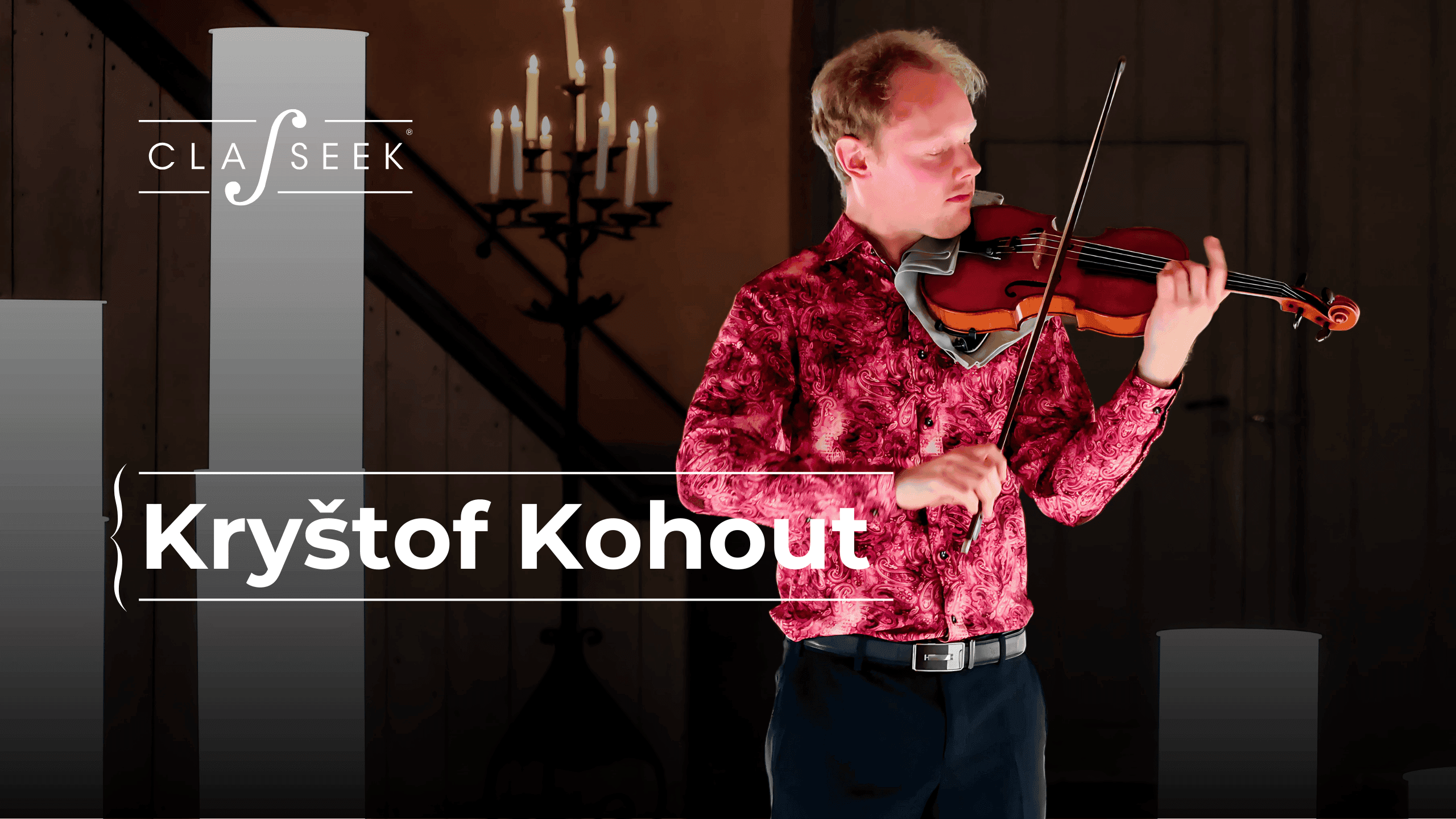
Programme
- M. Weinberg - Repliken
- H. I. F. Biber - Passacaglia "The Guardian Angel"
- R. Panufnik - Hora Bessarabia
- G. P. Telemann - Dolce
- M. Weinberg - Intervalle
- B. Bartók - Sonata for Solo Violin, Sz. 117
Programme Info
Kryštof Kohout (Violin), Open Application instrumentalist winner
Echoes of a solo violin
Greek playwright, Aristophanes, wrote: “I am Ekho, the Nymphe who repeats all she hears.”
Similarly, thematic fragments are repeated by the solo violin in Mieczysław Weinberg’s Repliken. These “replicas” evolve as the work progresses, with subtle changes in rhythm, pitch, and articulation, that slowly increase tension. Born in Poland, the composer was forced to flee to Russia in 1939. His unique sense of form, harmony and colour, he said, was informed by “[his] first music teacher…life.”
Performed by Czech violinist Kryštof Kohout, Repliken opens a dynamic programme in which solo violin unites, pushes and echoes the traditions and influences of the past.
Ekho’s beautiful singing voice seems to resonate in Heinrich Biber’s meditative work Passacaglia — “The Guardian Angel”. Each repetition creates a new, ever-shifting impression, layering into a rich, narrative path. Part of his Mystery Sonatas, Biber engages deeply with Catholic mysticism and devotional meditation. As the oldest surviving solo violin work, he adheres to a strict counterpoint style, while expressing a fascination with the spiritual and religious realm.
Ultimately, Ekho was cursed by goddess Hera for her endless, distracting chatter. Likewise, nineteenth century German composer, Telemann, was perceived to have written too much music, with quantity far outweighing quality. Yet his Violin Fantasias demonstrate the intimate succinctness of a self-taught violinist. The first movement of the Violin Fantasia No. 7 is a gentle, singing Dolce, with Polish and Moravian folk elements that are never overshadowed by its technical complexity.
Folk elements dominate Roxanna Panufnik’s Hora Bessarabia – an Eastern European circular dance. A British composer of Polish descent, Panufnik draws inspiration from Romanian melodies and intricate yet playful folk rhythms. This witty energy transforms in our next piece, with Weinberg’s raw and rustic, Intervalle. Interweaving and clashing intervals become more estranged amongst strong rhythmic elements and a turbulent dynamic range, creating a harmonic language that, like the rest of the programme, pushes limits.
Ekho was cursed with having to repeat the last words spoken to her. Perhaps this inspired the chaconne (ciaccona), a repeated progression always found in the bass voice. The first movement of his Bartók’s Sonata for Solo Violin features this continuous echo, amidst modernist harmonic language, complex rhythms and deep folk influences. Violinist Yehudi Menuhin, who commissioned the piece, at first believed it was “almost unplayable”. On exploring its intense emotional landscape, expressed originally in quarter-tones and chromatic slithers, he declared it was, in fact, “the most important composition for violin alone since Bach.”
Programme notes by Malika Jumbe.
Subscribe to Our Newsletter
Get the latest updates from all Classeek activities, events, and more - delivered straight to your inbox!